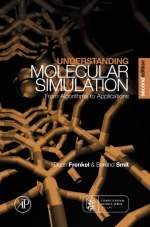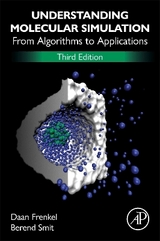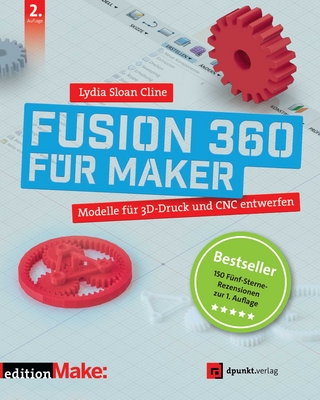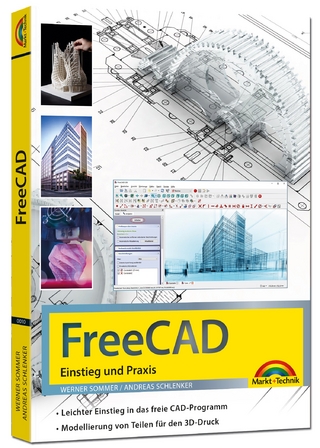
Understanding Molecular Simulation
Academic Press Inc (Verlag)
978-0-12-267351-1 (ISBN)
Understanding Molecular Simulation: From Algorithms to Applications explains the physics behind the "recipes" of molecular simulation for materials science. Computer simulators are continuously confronted with questions concerning the choice of a particular technique for a given application. A wide variety of tools exist, so the choice of technique requires a good understanding of the basic principles. More importantly, such understanding may greatly improve the efficiency of a simulation program. The implementation of simulation methods is illustrated in pseudocodes and their practical use in the case studies used in the text.
Since the first edition only five years ago, the simulation world has changed significantly -- current techniques have matured and new ones have appeared. This new edition deals with these new developments; in particular, there are sections on:
Transition path sampling and diffusive barrier crossing to simulaterare events
Dissipative particle dynamic as a course-grained simulation technique
Novel schemes to compute the long-ranged forces
Hamiltonian and non-Hamiltonian dynamics in the context constant-temperature and constant-pressure molecular dynamics simulations
Multiple-time step algorithms as an alternative for constraints
Defects in solids
The pruned-enriched Rosenbluth sampling, recoil-growth, and concerted rotations for complex molecules
Parallel tempering for glassy Hamiltonians
Examples are included that highlight current applications and the codes of case studies are available on the World Wide Web. Several new examples have been added since the first edition to illustrate recent applications. Questions are included in this new edition. No prior knowledge of computer simulation is assumed.
Daan Frenkel is based at the FOM Institute for Atomic and Molecular Physics and at the Department of Chemistry, University of Amsterdam. His research has three central themes: prediction of phase behavior of complex liquids, modeling the (hydro) dynamics of colloids and microporous structures, and predicting the rate of activated processes. He was awarded the prestigious Spinoza Prize from the Dutch Research Council in 2000. Berend Smit is Professor at the Department of Chemical Engineering of the Faculty of Science, University of Amsterdam. His research focuses on novel Monte Carlo simulations. Smit applies this technique to problems that are of technological importance, particularly those of interest in chemical engineering.
1. Introduction
Part I Basics 2. Statistical Mechanics 3. Monte Carlo Simulations 4. Molecular Dynamics Simulations
Part II Ensembles 5. Monte Carlo Simulations in Various Ensembles 6. Molecular Dynamics in Various Ensembles
Part III Free Energies and Phase Equilibria 7. Free Energy Calculations 8. The Gibbs Ensemble 9. Other Methods to Study Coexistence 10. Free Energies of Solids 11. Free Energy of Chain Molecules
Part IV Advanced Techniques 12. Long-Range Interactions 13. Biased Monte Carlo Schemes 14. Accelerating Monte Carlo Sampling 15. Tackling Time-Scale Problems 16. Rare Events 17. Dissipative Particle Dynamics
| Erscheint lt. Verlag | 19.10.2001 |
|---|---|
| Reihe/Serie | Computational Science Series ; Vol.1 |
| Zusatzinfo | Illustrations |
| Verlagsort | San Diego |
| Sprache | englisch |
| Gewicht | 1000 g |
| Themenwelt | Informatik ► Grafik / Design ► Digitale Bildverarbeitung |
| Naturwissenschaften ► Physik / Astronomie ► Atom- / Kern- / Molekularphysik | |
| Technik ► Maschinenbau | |
| ISBN-10 | 0-12-267351-4 / 0122673514 |
| ISBN-13 | 978-0-12-267351-1 / 9780122673511 |
| Zustand | Neuware |
| Informationen gemäß Produktsicherheitsverordnung (GPSR) | |
| Haben Sie eine Frage zum Produkt? |
aus dem Bereich



